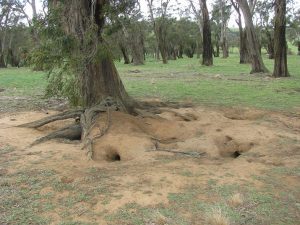
Residents of Menangle, Picton and Lakesland are being urged to vaccinate their pet rabbits before the roll out of a feral rabbit baiting program in late October.
Led by Greater Sydney Local Land Services with the support of major landholders, local councils and environmental agencies, the program will see the e-release of a new strain of Rabbit Haemorrhagic Disease Virus known as RHDV1-K5.
Greater Sydney team leader Nicole Schembri said the program adopted an integrated approach to the reduction and management of feral rabbits throughout known problem areas in the region.
Earlier this year the new strain of RHDV was released due to its improved suitability to Australian conditions, in particular the cool-wet regions of Sydney, she said.
“This is the second release after the initial national release in March 2017, which led to a 42 per cent reduction in feral rabbit numbers across NSW.
“This follow up program ensures we can target new areas and support more landholders and local governments to minimise the impact of these pests,” Ms Schembri said.
She said it was important domestic rabbit owners went to their local vets to vaccinate their pets prior to the release.
“The virus is spread mainly by contact between rabbits or via insects such as mosquitos and flies,’’ Ms Schembri said.
[social_quote duplicate=”no” align=”default”]“Importantly, RHDV is only effective in rabbits and if pets are vaccinated they become immune.”[/social_quote]
Feral rabbits are a declared pest in NSW due to the significant amount of agricultural and environmental damage they cause.
They are believed to have contributed to the decline or extinction of a number of NSW native species including the greater bilby and the yellow footed rock-wallaby.
Overgrazing by feral rabbits is estimated to cost Australian agriculture more than $200 million every year.

